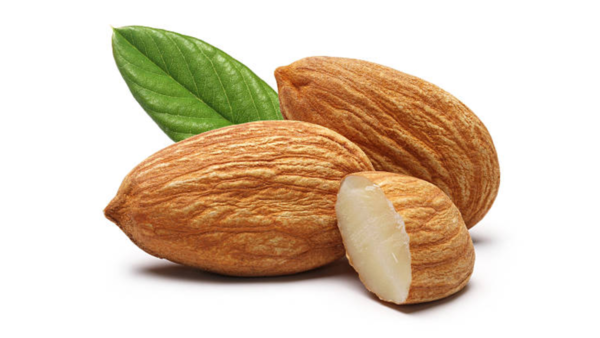Almonds, often referred to as the king of nuts, are packed with nutrients and health benefits that make them a staple in many diets worldwide, including Indian households. From being a go-to snack for weight watchers to being soaked and given to children for brain development, almonds are incredibly versatile and nutrient-dense. But how many almonds should you eat a day? When is the best time to eat them? How can you pair them for maximum benefit? And are there any precautions to keep in mind?
Almonds are an excellent source of essential nutrients
Here’s a breakdown of their nutritional profile for a 28-gram serving (about 23 almonds):
- Calories: 160
- Protein: 6 grams
- Healthy fats: 14 grams (9 grams monounsaturated, 3 grams polyunsaturated)
- Fiber: 3.5 grams
- Carbohydrates: 6 grams
- Vitamin E: 7.3 mg (37% of the Daily Value)
- Magnesium: 76 mg (19% of the Daily Value)
- Calcium: 76 mg (7% of the Daily Value)
- Iron: 1 mg (6% of the Daily Value)
Almonds are also rich in antioxidants, particularly in their brown skin, which helps combat oxidative stress and inflammation.
How many almonds should you eat in a day?
A handful of almonds is enough to boost your energy throughout the day. One handful of almonds will roughly be 7-8 almonds. You can soak them in water or milk or can also have them raw. For enhanced flavour, try dry roasting almonds. You can also prepare almond butter at home and have it with bread.
When to eat almonds for better absorption of nutrients?
Eating almonds in the morning, especially on an empty stomach, is ideal as they provide sustained energy throughout the day.

Almonds are a great source of quick energy before a workout. Post-workout, pair almonds with a source of protein like Greek yogurt to aid muscle recovery.
Replace unhealthy snacks with a handful of almonds to curb hunger and avoid overeating at meals.
Eating almonds at night can promote better sleep because they contain magnesium, which supports relaxation and reduces insomnia.
How to eat almonds the right way?
In order to enhance the absorption of nutrients, pair almonds with the right kind of food. Pair almonds with apples or bananas for a fiber-rich snack that balances natural sugars with healthy fats. Combine almonds with yogurt or milk to boost calcium and protein intake. Almonds are a classic addition to warm milk with a pinch of turmeric or cardamom. Almonds and dark chocolate make for a heart-healthy and antioxidant-rich treat. Add almonds to oatmeal, poha, or upma for a crunchy texture and an extra dose of healthy fats and protein.
Discover the Health Benefits of the Rainbow Diet
Children, especially students, pregnant women, athletes, those with diabetes and people with heart issues should always have almonds. If you have kidney stones you can avoid almonds.






